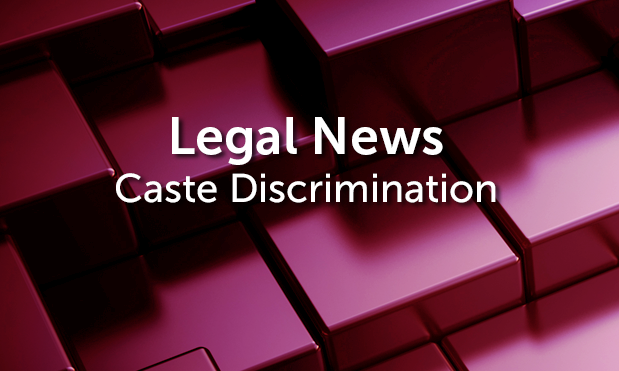 The Court permitted the claim of Caste discrimination to proceed to a full hearing
The Court permitted the claim of Caste discrimination to proceed to a full hearingThe issue of Caste discrimination has become more and more prominent over recent months. Whilst discrimination on the basis of Caste is not yet (expressly) prohibited by legislation, the definition of “race” is non-exhaustive and so it is arguable that it is provided for within the definition of race discrimination. However, the Government are required to amend the Equality Act 2010 to make express provision for Caste to become protected in the same way as the other protected characteristics and this will be done following a full public consultation which is likely to be introduced this Summer.
Caste discrimination is a form of discrimination based upon a person’s ‘status’, and usually derives from someone’s religious, occupational or clan system.
The recent Employment Tribunal case of Chandhok v Tirkey considered whether part of the Claimant’s claim (based on allegations of Caste discrimination) could continue on the basis of the current law.
The Claimant worked for Mr and Mrs Chandhok as a domestic worker. She alleged that due to her ‘inferior’ Caste and when compared to the ‘superior’ Caste of Mr and Mrs Chandhok, she suffered discriminatory treatment.
The Respondents tried to strike out this part of the claim, on the basis that “Caste” was not a protected characteristic under the Equality Act 2010 and did not fall within the protected characteristic of ‘race’. The definition of ‘race’ for these purposes may include someone’s colour, nationality, or ethnic or national origin.
The Court permitted the claim of Caste discrimination to proceed to a full hearing, on the basis that it does fall within the protected characteristic of ‘race’ by reference to the definition of ‘ethnic or national origin’.
It also held that the Government’s failure to specifically (expressly) legislate in this area and make Caste a protected characteristic, did not preclude the claim proceeding.
The Judgment made various comments about sufficient information being provided about Caste discrimination in a Claimant’s claim form, and the type of Caste that the Claimant is seeking to rely upon in bringing such a claim should be clearly set out.
The case brings welcome clarity to this area of the law where conflicting decisions previously existed. Given that the case itself could be appealed further however, this is an issue which is likely to arise and feature on the radar of recruitment agents acting on behalf of employers, in the coming months.






